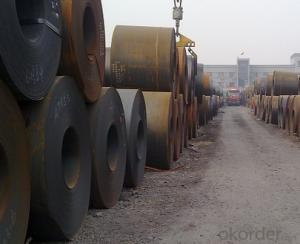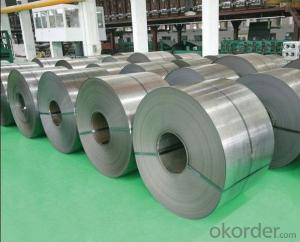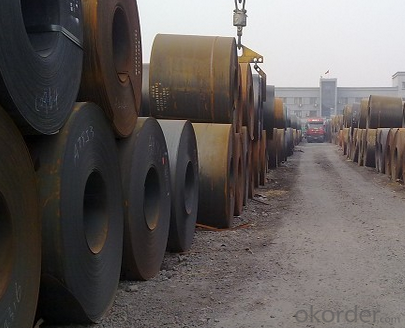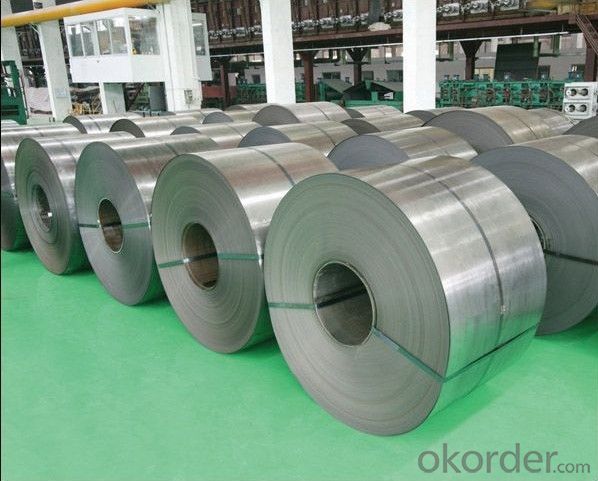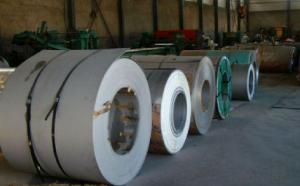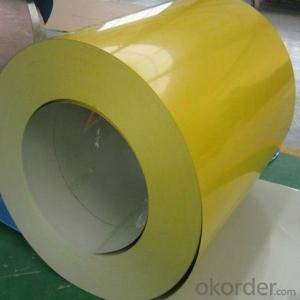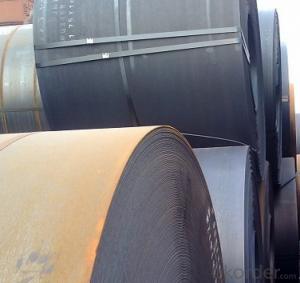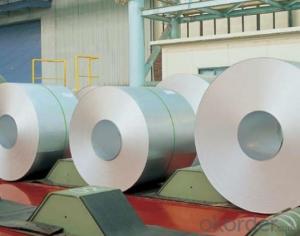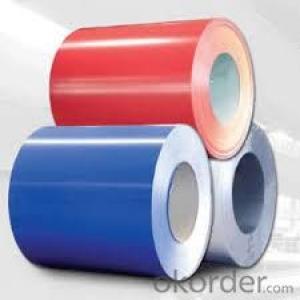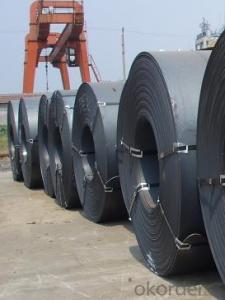Thickness: 0.15 - 2.0 mm
Technique: Hot Rolled
Application: Container Plate
Surface Treatment: Galvanized
Secondary Or Not: Non-secondary
Certification: CE
Special Pipe: Thick Wall Pipe
Alloy Or Not: Non-alloy
Section Shape: Other
Galvanized Steel Coil Dx51d+z CNBM
- Loading Port:
- Guangzhou
- Payment Terms:
- TT OR LC
- Min Order Qty:
- 20 m.t.
- Supply Capability:
- 3000 m.t./month
OKorder Service Pledge
OKorder Financial Service
You Might Also Like
1.Quick Details:
2.Packaging & Delivery
| Packaging Details: | standard package |
|---|---|
| Delivery Detail: | 1-4 week |
cold rolled galvanizing steel coil
galvanized iron steel coil
Thickness | 0.15mm--2.0mm |
Width | 50--1250mm |
Zinc Coating | 40gsm—275gsm |
Spangle | Big, small regular spangle and zero spangle |
Surface Treatment | Chromate, Galvanized, Skin Pass, Passivity and Oiled(un-oiled) |
ID | 508mm or 610mm |
Coil Weight | 3--7 Metric Tons and as requirements |
Production | 12,000 metric tons per month |
More information of Galvanized Steel Coils/GI/PPGI/HDG | |
Payment Term | T/T or L/C (We usually charge 30% of the deposit first.) |
Delivery Port | Qingdao Port or Tianjin Port |
Delivery Time | Within 20 days after receipt of T/T or L/C |
MOQ | 25 metric tons or one 20 feet container |
Application | General use, Color coating, Corrugated Roofing making, Outside of the buildings Structure, Deep Drawing and etc. |
Ambition | Reliable product, Competitive price, On-time delivery and High standard service. |
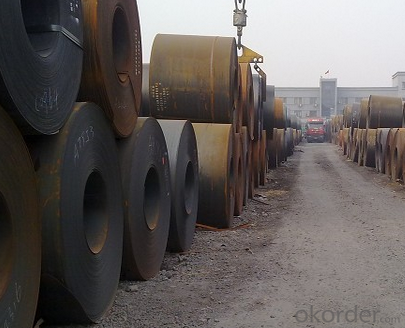
5.What is the application of Steel Coil?
There are two sides,one is out side: Workshop, agricultural warehouse, residential precast unit, corrugated roof, roller shutter door, rainwater drainage pipe, retailer booth;the other is inside: Door, doorcase, light steel roof structure, folding screen, elevator, stairway, vent gutter.
- Q: im buying a new guitar,, it has a built in tuner and its semi acoustic (can be plugged into an amplifier) ,, im trying to choose which strings are better ,, steel or nylon..?
- That's not an option Guitars are designed for either nylon or steel strings. They aren't interchangeable. Putting steel strings on a guitar designed for nylon strings WILL destroy the guitar. If you've already picked out the guitar you want, then you've already made your decision about nylon or steel.
- Q: What are the different methods of coil rewinding for steel coils?
- There are several different methods of coil rewinding for steel coils, including manual rewinding, semi-automatic rewinding, and fully automatic rewinding. In manual rewinding, the coils are rewound by hand using a winding machine or tool. Semi-automatic rewinding involves the use of a machine that assists with the rewinding process, but still requires some manual intervention. Fully automatic rewinding, on the other hand, involves the use of advanced machinery that can automatically rewind the steel coils without any manual intervention. These different methods offer varying levels of efficiency, speed, and precision in the coil rewinding process.
- Q: can anyone help me to find any webpage about lists/types of stainless steel?
- Types of stainless steel There are over 150 grades of stainless steel, of which fifteen are most common. The AISI (American Iron and Steel Institute) defines the following grades among others: - 200 Series—austenitic iron-chromium-nickel-manganese alloys - 300 Series—austenitic iron-chromium-nickel alloys Type 301—highly ductile, for formed products. Also hardens rapidly during mechanical working. Type 303—free machining version of 304 via addition of sulfur Type 304—the most common; the classic 18/8 stainless steel Type 316—Alloy addition of molybdenum to prevent specific forms of corrosion - 400 Series—ferritic and martensitic alloys.
- Q: Can steel coils be coated with luminescent materials?
- Yes, steel coils can be coated with luminescent materials.
- Q: What is the weight range of steel coils?
- The weight range of steel coils varies depending on the specific type and dimensions, but they generally range from a few hundred kilograms to several tonnes.
- Q: How do steel coils contribute to the transportation industry?
- Steel coils play a significant role in the transportation industry due to their versatility and durability. These coiled steel sheets are used for various purposes, such as manufacturing automobiles, shipping containers, and railway cars. In the automotive industry, steel coils are used to produce various components, such as body panels, chassis, and engine parts. The strength and malleability of steel make it an ideal material for ensuring the safety and durability of vehicles. Additionally, steel coils are used in the manufacturing of shipping containers that are used to transport goods across the globe. The sturdiness and resistance to corrosion provided by steel coils ensure the protection of goods during transportation. Furthermore, steel coils are crucial in the railway industry. They are used to manufacture railway cars, including freight cars and passenger coaches. The strength and durability of steel make it ideal for withstanding the heavy loads and harsh operating conditions experienced by railway vehicles. Steel coils also contribute to the construction of railroad tracks and bridges, providing the necessary strength and stability for safe and efficient transportation. Overall, steel coils are essential in the transportation industry as they provide the necessary strength, durability, and versatility required for the manufacturing of various transportation vehicles and infrastructure. Their contribution ensures the safety, reliability, and efficiency of transportation systems, making them indispensable in the modern world.
- Q: How are steel coils used in the manufacturing of exhaust manifolds?
- Steel coils are used in the manufacturing of exhaust manifolds as they are rolled into specific shapes and sizes to form the primary structure of the manifold. The coils are cut, bent, and welded together to create the required geometry, ensuring the exhaust gases flow smoothly and efficiently from the engine. Additionally, the steel coils provide the necessary strength and durability to withstand high temperatures and the harsh conditions of the exhaust system.
- Q: What dangers were there for the steel workers in Pittsburgh under Carnegie?
- Same as other steel plants, getting crushed by falling steel, getting burned by hot metal etc
- Q: I had a damascus steel katana made for me and was wondering if I could put gun blue on it to make the steel black and it still work right
- There are many makers that use blue on there Damascus. My question, what the heck are you wanting to mess with the finish for? If you had a true Damascus blade made that that thing cost a fortune, and I don't mean under a grand either. Then there is the question of what it is made from, some steel combinations react well to the gun blue, others not so much. If it is a stainless blade it won't work at all and you shouldn't be using it either. I can tell you, my Damascus blades start at $100 for a small cable knife and go up from there. If you wanted a sword it would push 10 g's easy. None of my customers would mess with the finish, most would cry if it got scratched. If it's has a pretty pattern don't mess with it.
- Q: How are steel coils packaged for shipping?
- Steel coils are typically packaged for shipping by placing them on wooden or steel pallets, securing them with steel bands or straps, and covering them with protective wrapping such as plastic or waterproof paper. This packaging ensures the coils remain stable, protected from corrosion, and are easy to handle and transport.
Send your message to us
Galvanized Steel Coil Dx51d+z CNBM
- Loading Port:
- Guangzhou
- Payment Terms:
- TT OR LC
- Min Order Qty:
- 20 m.t.
- Supply Capability:
- 3000 m.t./month
OKorder Service Pledge
OKorder Financial Service
Similar products
Hot products
Hot Searches
Related keywords
